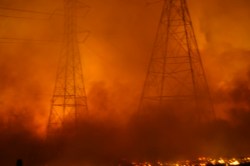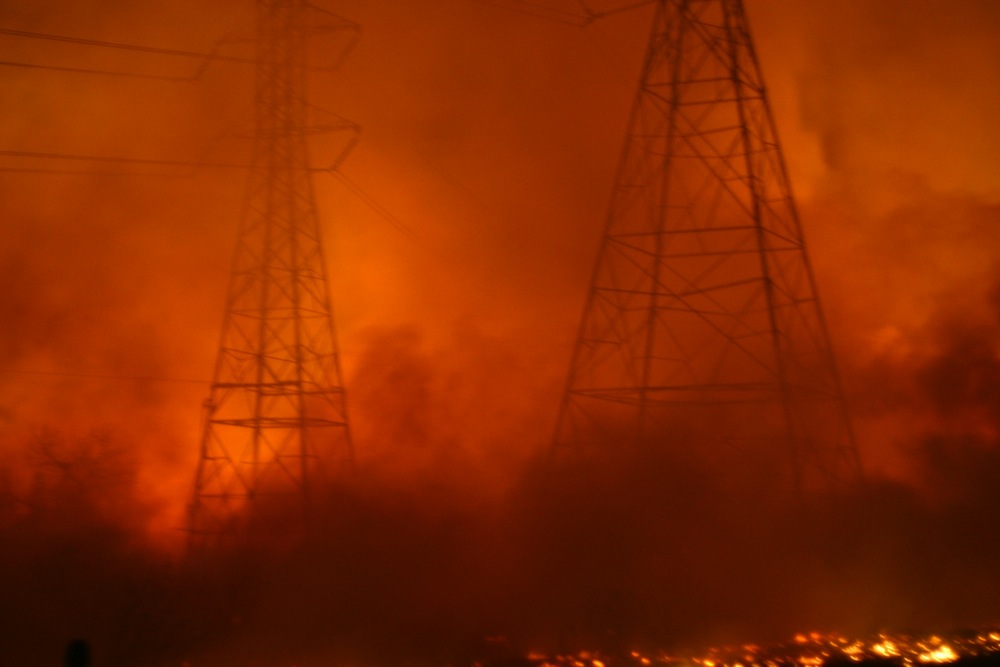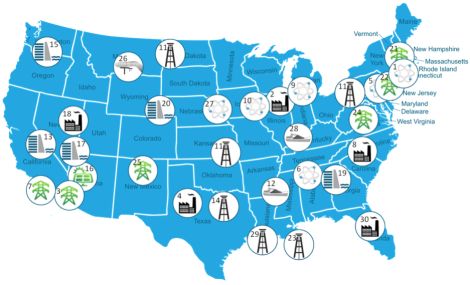
Julian BravoClimate change can bring with it forest fires, which can threaten power lines.
More global warming will mean a less reliable power system.
That warning comes from the Department of Energy, which released a report [PDF] on Thursday detailing the threats posed to the nation’s power infrastructure by rising temperatures, droughts, storms, floods, and sea-level rise.
“Climatic conditions are already affecting energy production and delivery in the United States, causing supply disruptions,” the report states. “The magnitude of the challenge posed by climate change on an aging and already stressed U.S. energy system could outpace current adaptation efforts, unless a more comprehensive and accelerated approach is adopted.”
Some of the threats listed in the report:
- Power plants are threatened by decreased water availability and rising air and water temperatures, which make it harder to keep the facilities cool.
- Refineries, oil and gas drills, power plants, and power lines along the coasts are at risk from rising seas, powerful storms, and flooding.
- Hydropower, bioenergy, and some forms of solar power can be affected by droughts and rising temperatures.
- Power lines carry less current and operate less efficiently in hot weather, and they are vulnerable to damage wrought by storms and forest fires.
- Demand for electricity for air-conditioning is expected to rise, though demand for fuel oil and natural gas for heating is expected to fall.
According to The Hill, the release of the report marks the beginning of a larger effort by the DOE to push the energy industry to prepare for the rise in extreme weather events.
The department isn’t just talking in hypothetical terms. Click on the following map of climate-related energy disruptions to open an interactive version on the Energy Department’s website:




